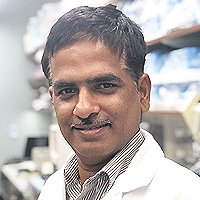Nebulization as complementary therapy for dogs with respiratory tract infections
Published on: 4th October, 2019
OCLC Number/Unique Identifier: 8299739396
Respiratory tract infections in dogs pose a significant problem and often require prolonged treatment. The effectiveness of pharmacological therapy can be improved through the administration of nebulized compounds to liquidize mucus and promote its evacuation from the respiratory tract. The aim of this study was to evaluate the effectiveness of nebulized 0.9% NaCl in dogs with respiratory tract infections. Respiratory functions were assessed based on the results of arterial blood gas analyses, and the patients’ clinical status was determined by evaluating the severity of symptoms on a point grading scale. Inhalation of nebulized 0.9% NaCl significantly accelerated improvement in the patents’ clinical status (normalization of body temperature, decreased cough frequency, decrease/elimination of nasal and ocular discharge, improved appetite) and improved pulmonary gas exchange by reducing partial pressure and total content of carbon dioxide and increasing partial pressure and total content of oxygen in blood.
General practitioners’ knowledge, attitudes and practices on antibiotic prescribing for acute respiratory infections in children in Lubumbashi, Democratic Republic of Congo
Published on: 16th September, 2020
OCLC Number/Unique Identifier: 8701522218
Objective: To assess the knowledge, attitudes and practices declared among general practitioners (GPs) concerning the use of antibiotics for the treatment of ARI in children under 5 years in Lubumbashi.
Methods: A cross-sectional survey was conducted to assess the level of knowledge, attitude and practices concerning antibiotic prescribing among 67 GPs working in the pediatric setting in various health structures in Lubumbashi city, in the Democratic Republic of Congo. Data were collected from April 1st to June 30th, 2020.
Results: GPs had limited knowledge about antibiotic prescriptions (mean of 46% correct answers to 8 questions). Although they are generally concerned about antibiotic resistance (mean ± SD = 0.50 ± 0.68), and are unwilling to submit to pressure to prescribe antibiotics to meet patient demands and expectations (mean ± SD = –1.78 ± 0.31) and the requirements to prescribe antibiotics for fear of losing patients (mean ± SD = –1.67 ± 0.47), there was a lack of motivation to change prescribing practices (mean ± SD = −0.37 ± 0.94) and strong agreement that they themselves should take responsibility for tackling antibiotic resistance (mean ± SD = 1.24 ± 0.74). Multiple linear regression results showed that higher knowledge scores were associated with less avoidance of responsibility when prescribing antibiotics (β = 0.919; p = 0.000).
Conclusion: To curb the over-prescription of antibiotics, it is not enough to improve knowledge in itself. The lack of motivation of physicians to change must be addressed through a systematic approach. These data show the need for interventions that support the rational prescribing of antibiotics.
Update in the Understanding, Diagnosis, and Management of Sturge Weber Syndrome: Case Report
Published on: 24th August, 2023
Sturge-Weber Syndrome (SWS) is a congenital, vascular, neurocutaneous, uncommon disease associated with facial angiomas port wine birthmark (PWB) or “nevus flammeus”, cerebral vascularity alterations (leptomeningeal vascular malformation), and ocular disorders. It is the third most common neurocutaneous syndrome after neurofibromatosis and tuberous sclerosis. GNAQ R183Q is the most frequent related mutation, caused by a postzygotic, somatic, gain-of-function. 75% of patients present seizures during the first year of life, mainly focal motor seizures, with or without consciousness impairment.We present the case of a 33-year-old female with a diagnosis of SWS, with refractory seizures that started at 4 months of age. In this admission, she presented upper and lower respiratory tract infections that culminated in a convulsive status epilepticus (CSE), the reason for which she required sedation and advanced airway management with adjustment of the anti-seizure medication (ASM). An electroencephalogram (EEG) was performed that reported epileptic activity, as well as an imaging study with data suggestive of calcification in the frontal and right parietal region, compatible with vascular malformation.
Browse by Subjects
Biology Group Journals
Chemistry Group Journals
Clinical Group Journals
- Archives of Food and Nutritional Science
- Annals of Dermatological Research
- International Journal of Clinical Microbiology and Biochemical Technology
- Journal of Advanced Pediatrics and Child Health
- Journal of Pulmonology and Respiratory Research
- Insights in Clinical and Cellular Immunology
- International Journal of Clinical Anesthesia and Research
- Journal of Clinical Intensive Care and Medicine
- Journal of Clinical, Medical and Experimental Images
- Journal of Neuroscience and Neurological Disorders
- Insights in Veterinary Science
- Archives of Asthma, Allergy and Immunology
- Journal of Child, Adult Vaccines and Immunology
- Archives of Cancer Science and Therapy
- Clinical Journal of Nursing Care and Practice
- Annals of Clinical Gastroenterology and Hepatology
- Journal of Hematology and Clinical Research
- Archives of Pathology and Clinical Research
- Annals of Clinical Hypertension
- Journal of Oral Health and Craniofacial Science
- International Journal of Clinical and Experimental Ophthalmology
- Journal of Radiology and Oncology
- Archives of Clinical and Experimental Orthopaedics
- International Journal of Bone Marrow Research
- International Journal of Clinical Virology
- New Insights in Obesity: Genetics and Beyond
- Advanced Treatments in ENT Disorders
- Journal of Clinical Advances in Dentistry
- Insights on the Depression and Anxiety
- Heighpubs Otolaryngology and Rhinology
- Clinical Journal of Obstetrics and Gynecology
- Archives of Surgery and Clinical Research




